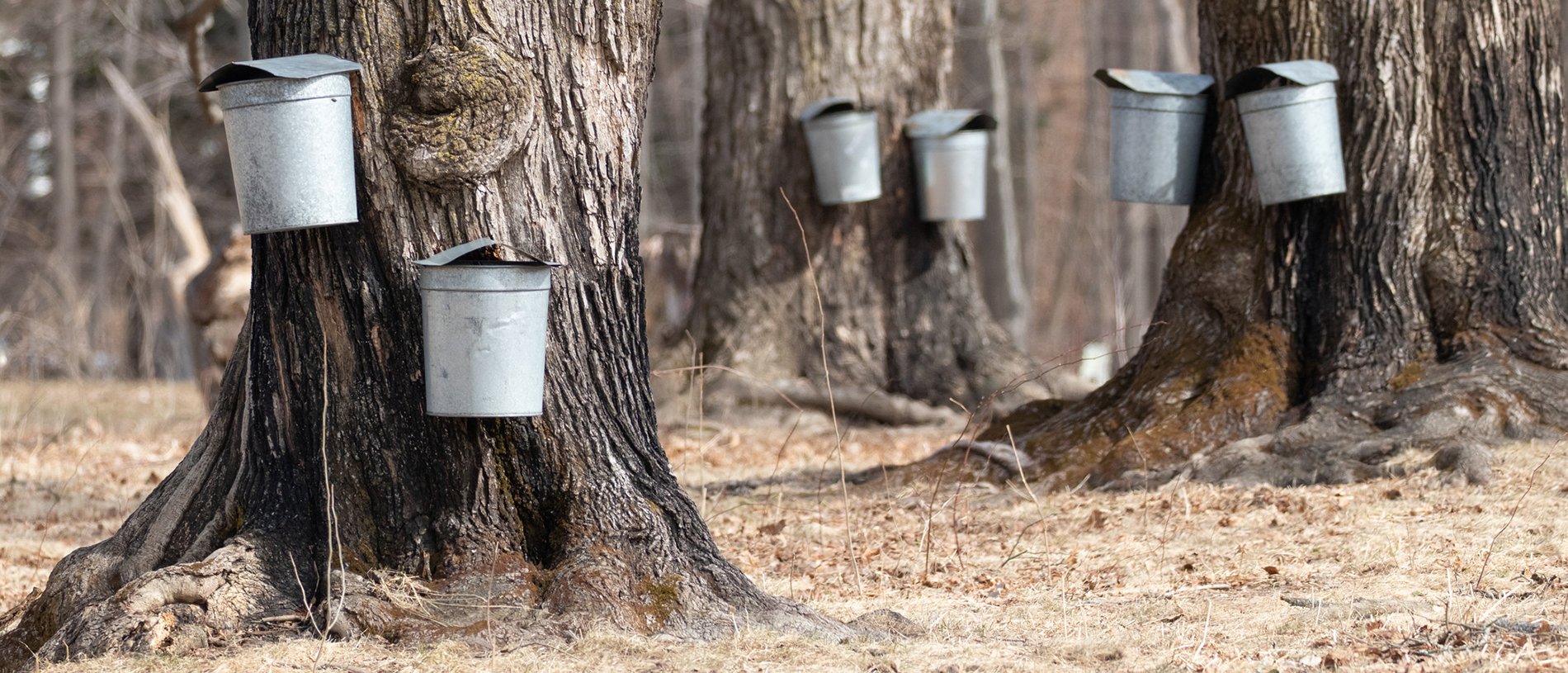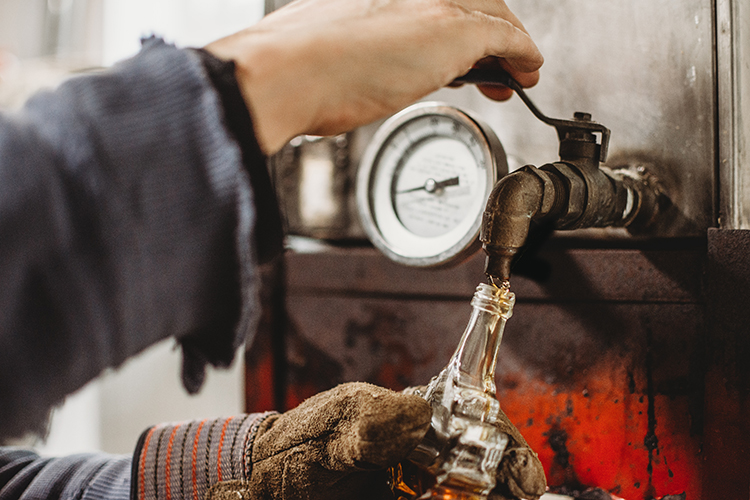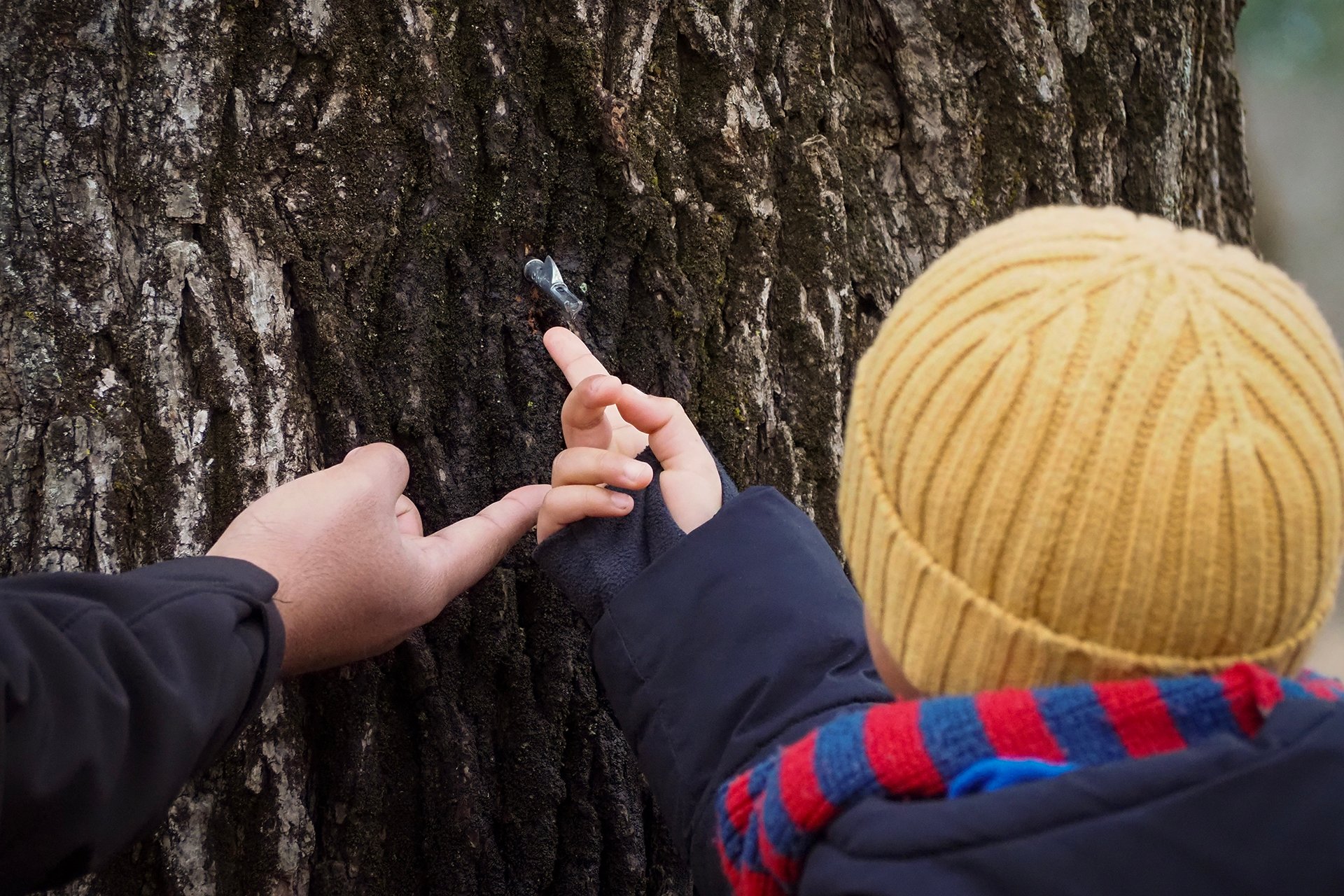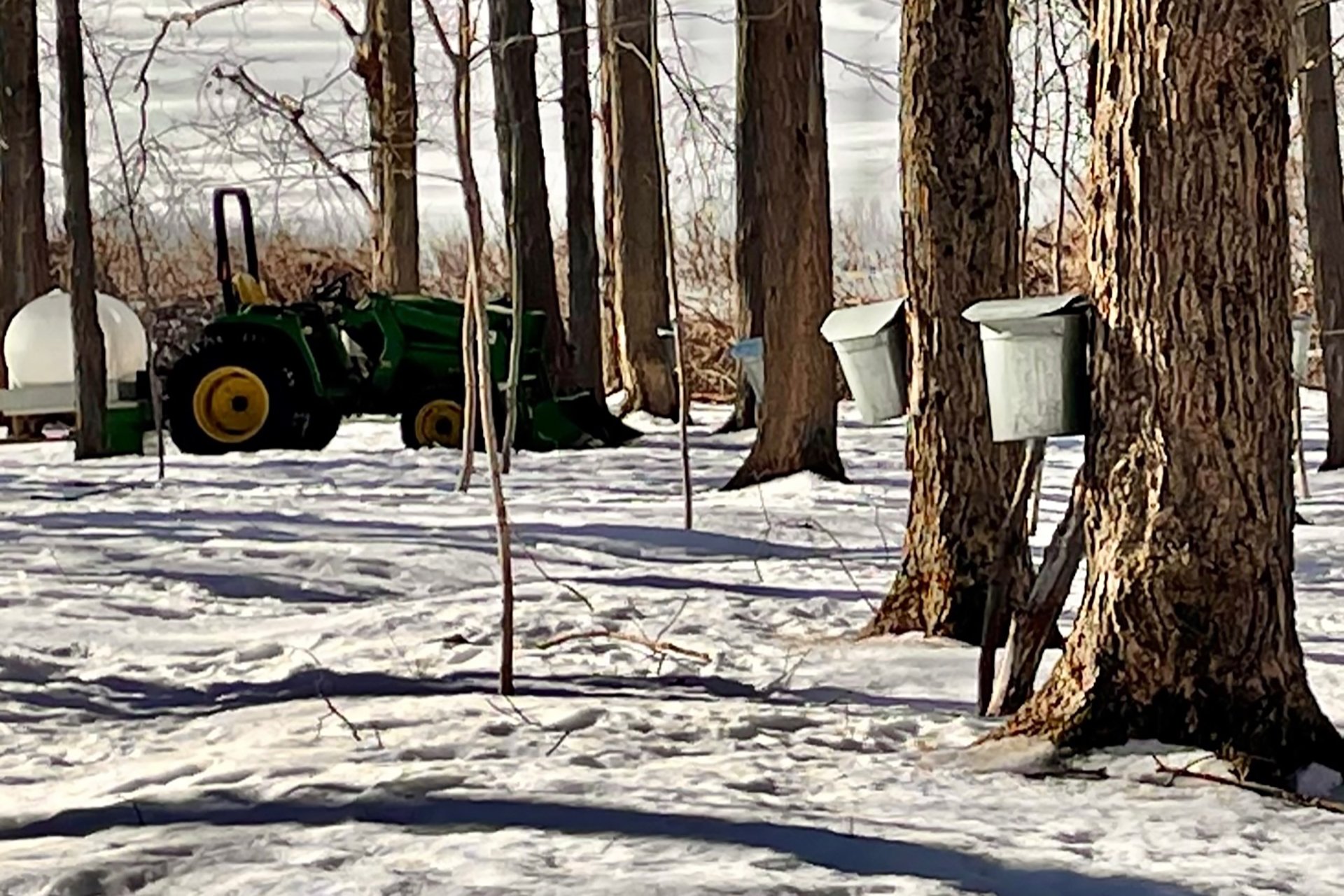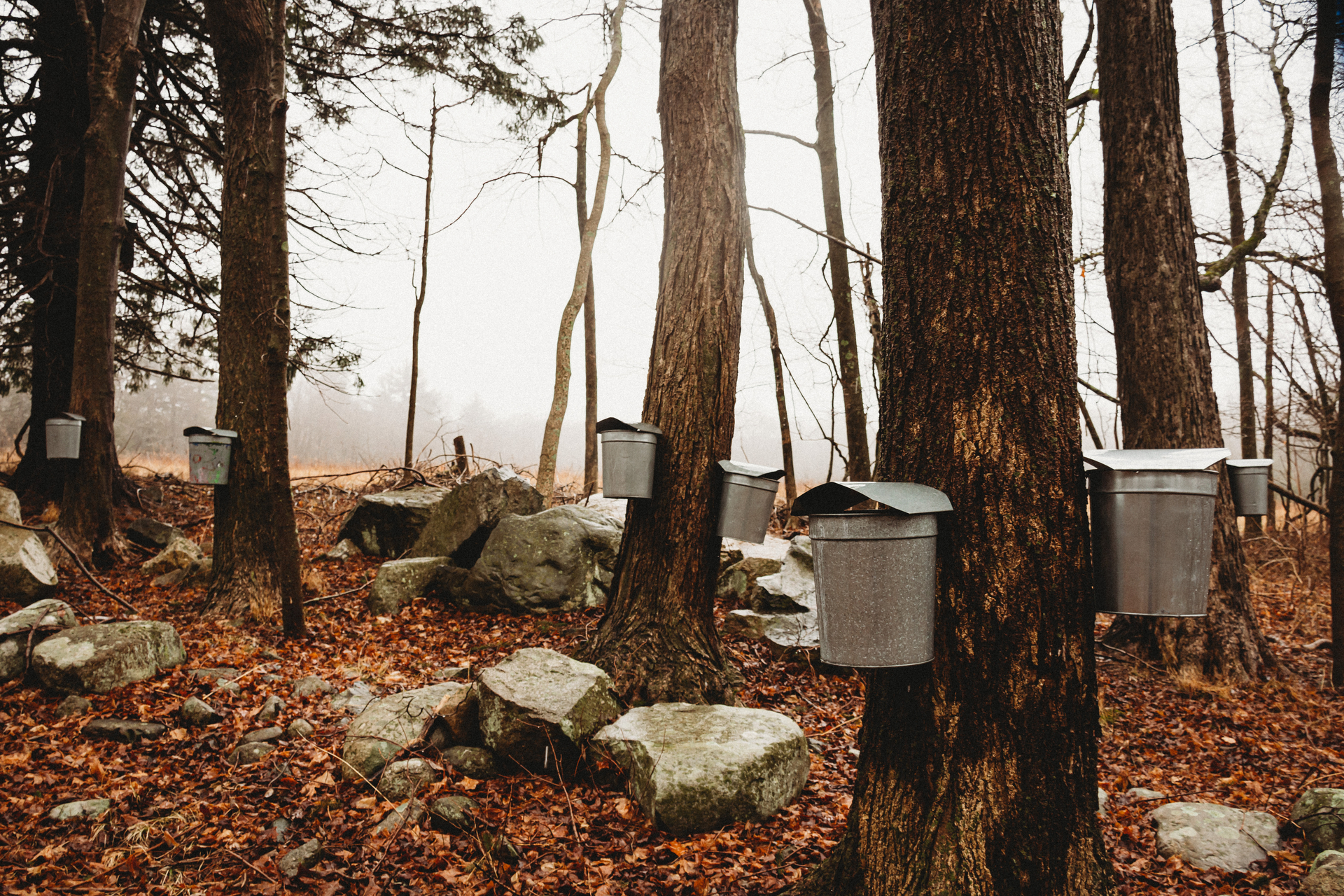The Art of Maple Sugaring
Come late winter, with nights below freezing and the days mild, maple trees across the state begin to flow with sap. We know the final form of this sap as sweet syrup smothered over pancakes or poured over a bowl of oatmeal, but how much do you actually know about maple sugar?
Maple Sugaring at Mass Audubon
In February and March, Mass Audubon offers maple sugaring programs or tree-tapping demonstrations at five locations:
- Moose Hill in Sharon
- Drumlin Farm in Lincoln
- Ipswich River in Topsfield
- Boston Nature Center in Mattapan
The History of Maple Sugaring
First produced by the Indigenous peoples of North America, maple syrup is made by boiling and reducing the sap of maple trees. There are 13 species of maple trees native to North America, and only four of those species can be tapped: Silver, Red, Black, and Sugar maples. Norway maples, which are not native, can also be tapped.
Sugar Maples produce the best sap for sugaring because the sap has a higher concentration of sugar than other maple species, typically around 2%, but can vary from tree to tree and according to season. The final sugar content of maple syrup is 66–67%.
Every year, Massachusetts produces 50,000–60,000 gallons of maple syrup. To produce one gallon of syrup, 40–50 gallons of raw sugar maple sap needs to be collected.
Threats Facing Maple Sugaring and Syrup Production
Sap runs normally occur in Massachusetts from mid-February to mid-March when night temperatures fall below 25 degrees Fahrenheit and days warm to at least 40 degrees Fahrenheit. Unfortunately, the sugar content of maple sap is declining over time as a result of climate change, and milder winters and earlier, more unpredictable spring thaws are resulting in lower yields and more frequent poor sugaring seasons.
Maple Sugaring with Birds in Mind
As if you needed another reason to love maple syrup, you can now enjoy it while protecting bird habitats. Mass Audubon has partnered with the Massachusetts Department of Conservation and Recreation, Massachusetts Maple Producers Association, Massachusetts Woodlands Institute, and Audubon Vermont to launch a Bird-Friendly Maple Project in Massachusetts, modeled after the original program developed by Audubon Vermont.
Many sugaring operations only grow and support maple trees in a sugarbush (i.e., stands of maple trees used for sap collection), leaving limited space for bird habitats. By allowing other tree and shrub species to grow alongside the maples, biodiversity and habitat features flourish. Maple producers can provide more high-quality nesting and foraging opportunities for forest birds simply by keeping cavity trees, leaving fallen logs on the ground, and adding layers of vegetation. This provides niche environments that allow a variety of forest birds to coexist in close proximity.
The same Bird-Friendly Maple Project practices that increase biodiversity also help forests mitigate and adapt to climate change by sequestering more carbon and increasing overall forest resilience.
As an extension of our Foresters for the Birds program, landowners that meet the standards required by the Bird-Friendly Maple Project can now have their maple syrup recognized as bird-friendly. Look for the bird-friendly maple logo to support the efforts of syrup producers.
Latest News
See MoreHow the North Shore Continues the Age-old Tradition of Maple Sugaring
Keep ReadingHow Moose Hill Turns Sap into Maple Syrup
Keep ReadingStay Connected
Don't miss a beat on all the ways you can get outdoors, celebrate nature, and get involved.



